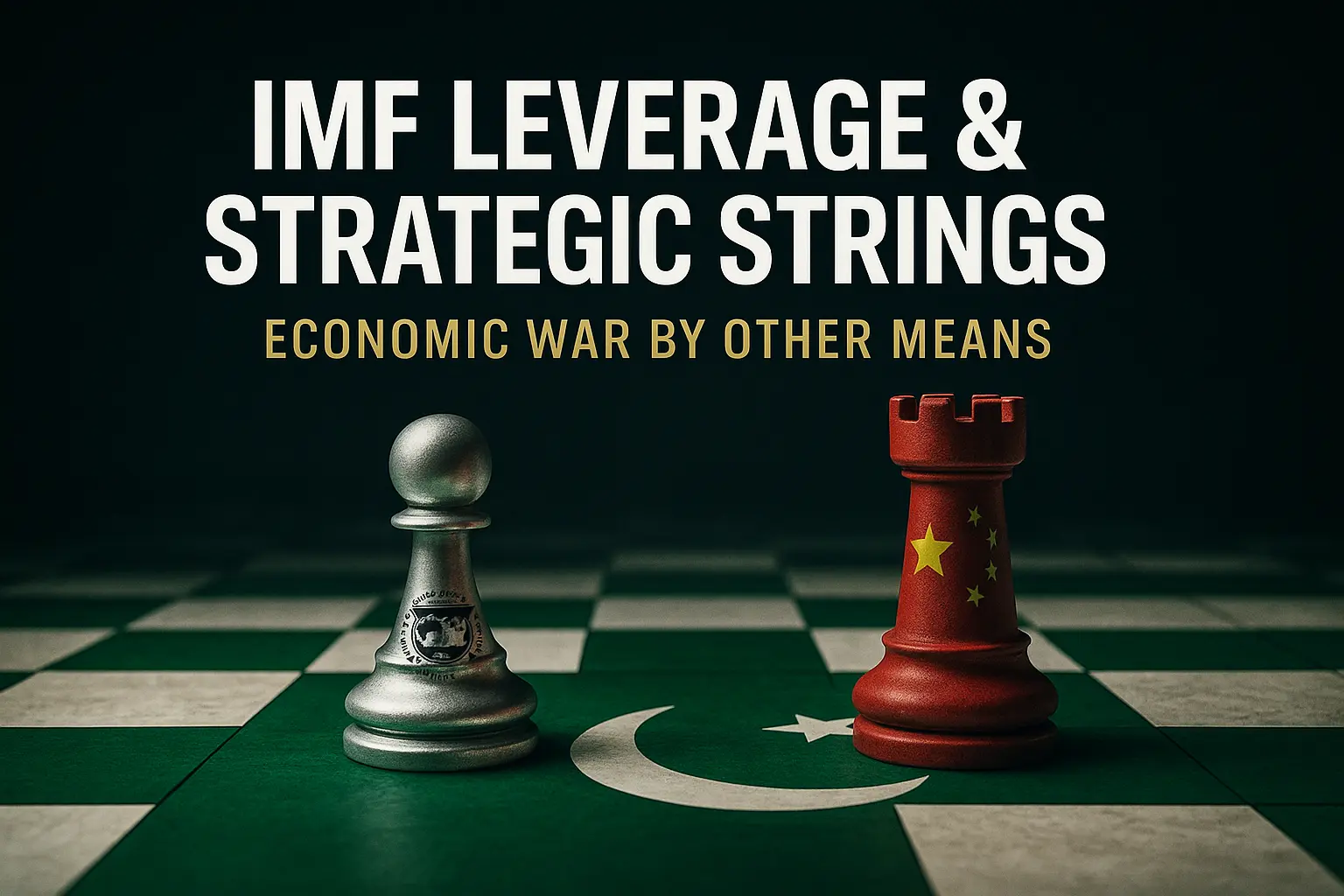Pakistan’s latest $1.2 billion staff-level agreement with
the International Monetary Fund has once again placed the nation at a crossroads between economic relief and strategic dependence. While officials hail the deal as a financial lifeline for the struggling economy, beneath the surface lies a deeper question — is Pakistan truly stabilizing, or gradually surrendering critical policy space to global financial actors?
1. The IMF Deal — A Familiar Script
The IMF agreement marks another chapter in Pakistan’s long, cyclical relationship with external lenders.
•Foreign exchange reserves barely cover two months of imports.
•Inflation remains in double digits.
•Fiscal imbalances persist despite repeated promises of reform.
The agreement offers short-term relief, yet the conditions tied to it — tax hikes, energy subsidy removals, and structural reforms — reflect fiscal medicine with geopolitical side effects. Each promise of stability has historically come with reduced autonomy in policymaking.
2. Beyond Economics — The Geopolitical Undertones
While the IMF presents itself as a neutral institution, its policy prescriptions often mirror the strategic objectives of its principal shareholders, notably the United States and Western allies.
•The timing of this deal coincides with renewed pressure on Pakistan to rethink its growing alignment with China.
•Certain reform conditions subtly discourage state-backed industrial subsidies that strengthen defense-related industries.
In this sense, the IMF’s role extends beyond economics — it becomes an instrument of geopolitical steering, shaping Islamabad’s external orientation under the guise of fiscal discipline.
3. Economic Conditionality and Strategic Leverage
Every IMF tranche comes with performance benchmarks — fiscal targets, energy sector reforms, privatization drives. But these technicalities conceal strategic implications:
•Privatization of key state assets may open avenues for foreign ownership aligned with Western capital.
•Transparency clauses can indirectly expose CPEC’s financial structures to international oversight.
•Restrictions on development spending weaken Pakistan’s economic sovereignty over its own industrial policy.
The more Pakistan complies, the more policy space it cedes — turning what should be an economic partnership into a conditional hierarchy.
4. The China Factor — A Silent Contest
Beijing views IMF involvement in Pakistan with caution.
•Chinese loans and energy investments form the backbone of Pakistan’s current-account stability.
•Any IMF audit or transparency clause potentially compromises Beijing’s financial influence.
Pakistan thus finds itself walking a tightrope between two power blocs:
•Western-led institutions offering stabilization with surveillance,
•and China offering investment with expectations of exclusivity.
The duality of dependence defines Islamabad’s modern foreign policy dilemma — to secure survival without surrendering strategic balance.
5. Domestic Consequences and Public Pressure
For ordinary citizens, IMF conditions translate into:
•Higher fuel and electricity prices,
•Increased taxation,
•Reduced subsidies and shrinking social protection.
While macroeconomic indicators might stabilize, the public experiences “stability inflation” — where currency strength improves but daily life worsens.
Economic sovereignty loses meaning if citizens remain trapped between external debt and domestic despair.
6. Strategic Outlook — Toward a Sovereign Economic Doctrine
To break this recurring cycle, Pakistan must move toward an economic security doctrine that integrates fiscal, industrial, and foreign policy goals.
Key steps include:
1.Embedding economic planning within national security frameworks.
2.Negotiating future IMF programs with sovereignty clauses protecting strategic sectors.
3.Expanding regional trade linkages with China, Türkiye, and Central Asia.
4.Prioritizing industrial self-reliance and technology-driven exports.
Without such recalibration, Pakistan risks remaining in permanent financial subordination — dependent for survival yet denied strategic autonomy.
Conclusion
The IMF agreement may temporarily steady Pakistan’s economy, but it also tightens the geopolitical leash. In today’s interconnected world, economic aid is never neutral; it is an instrument of influence.
Stability achieved at the cost of sovereignty represents a controlled equilibrium — one that sustains the system but slowly erodes independence under the veneer of reform.


